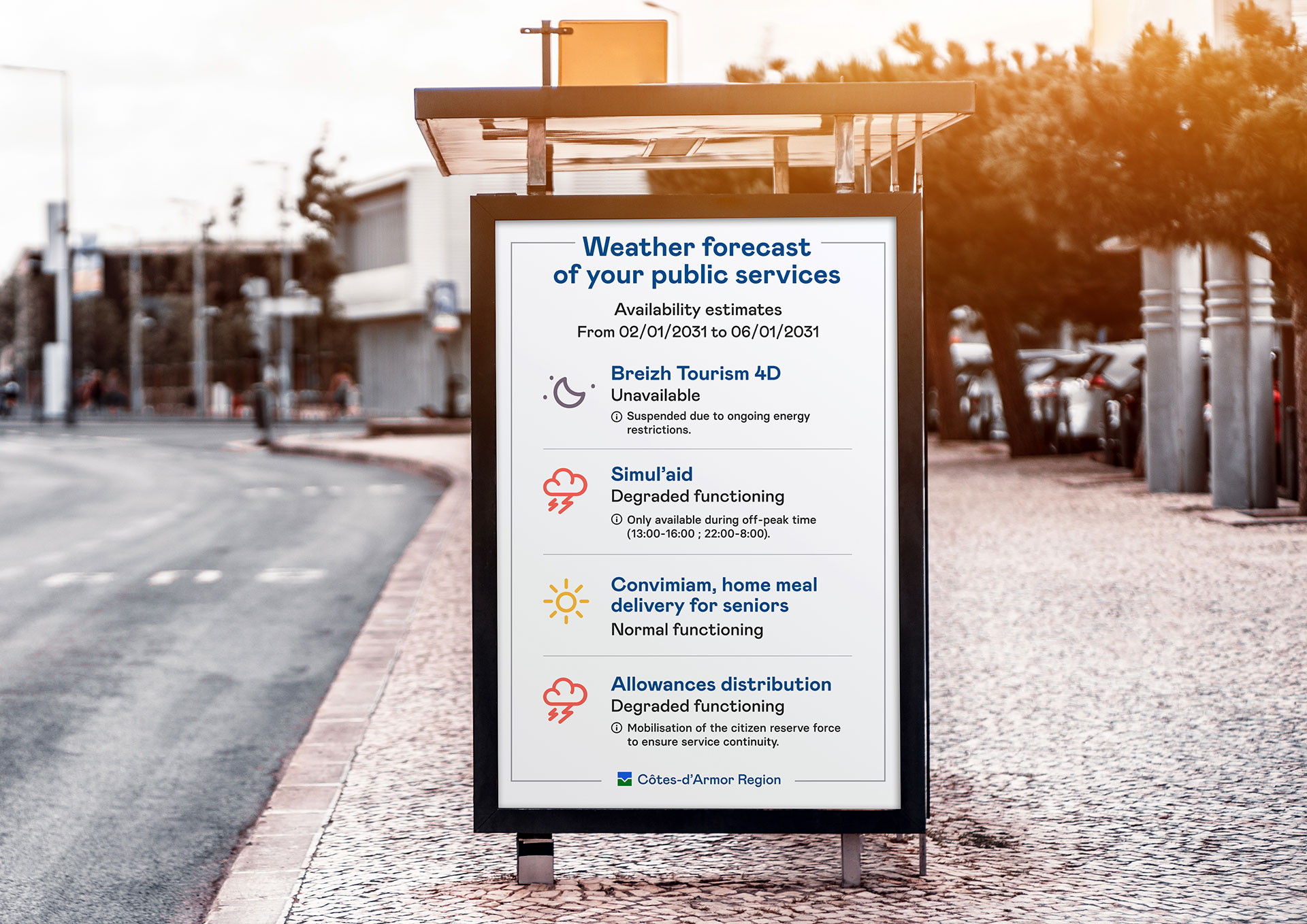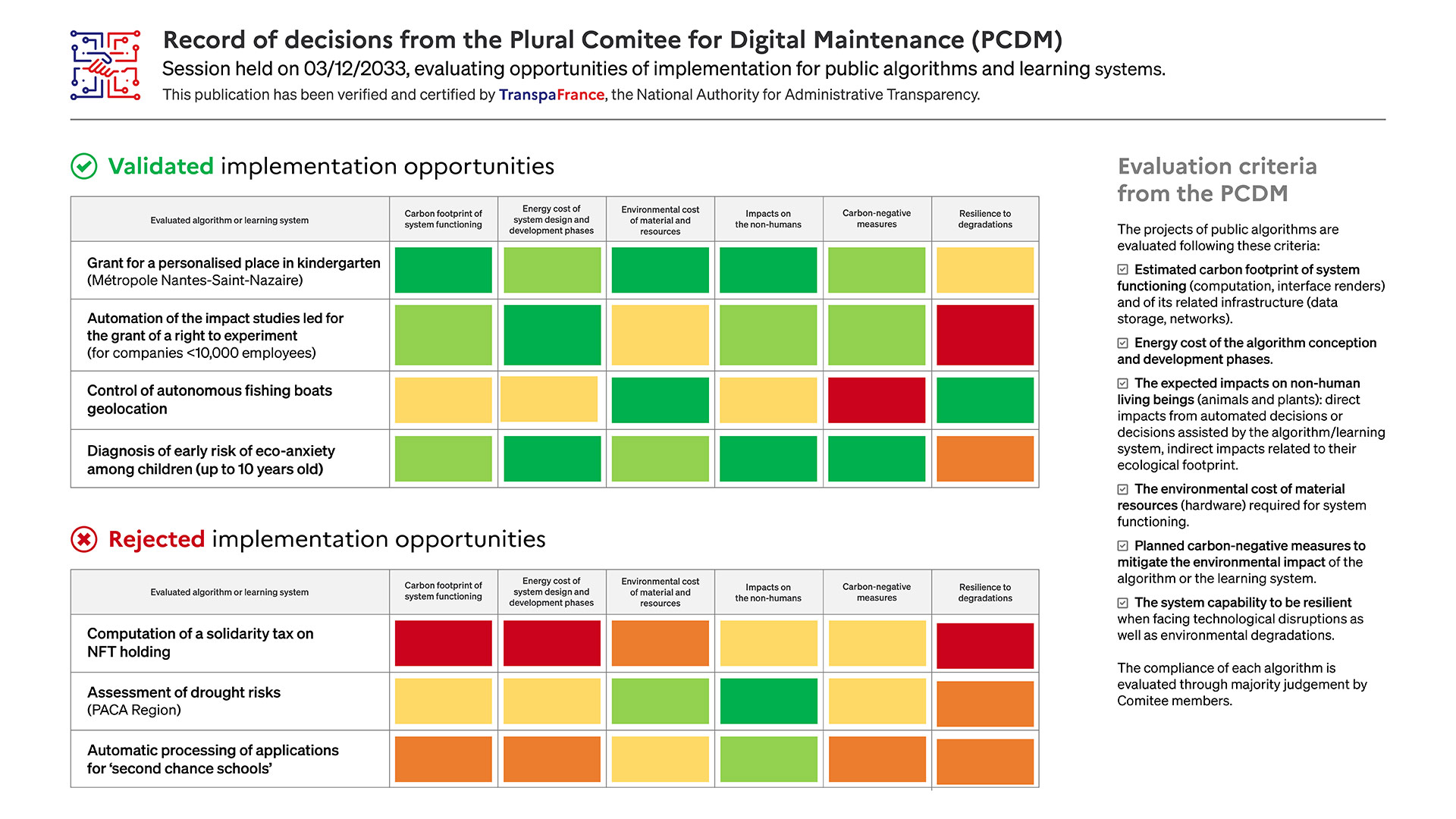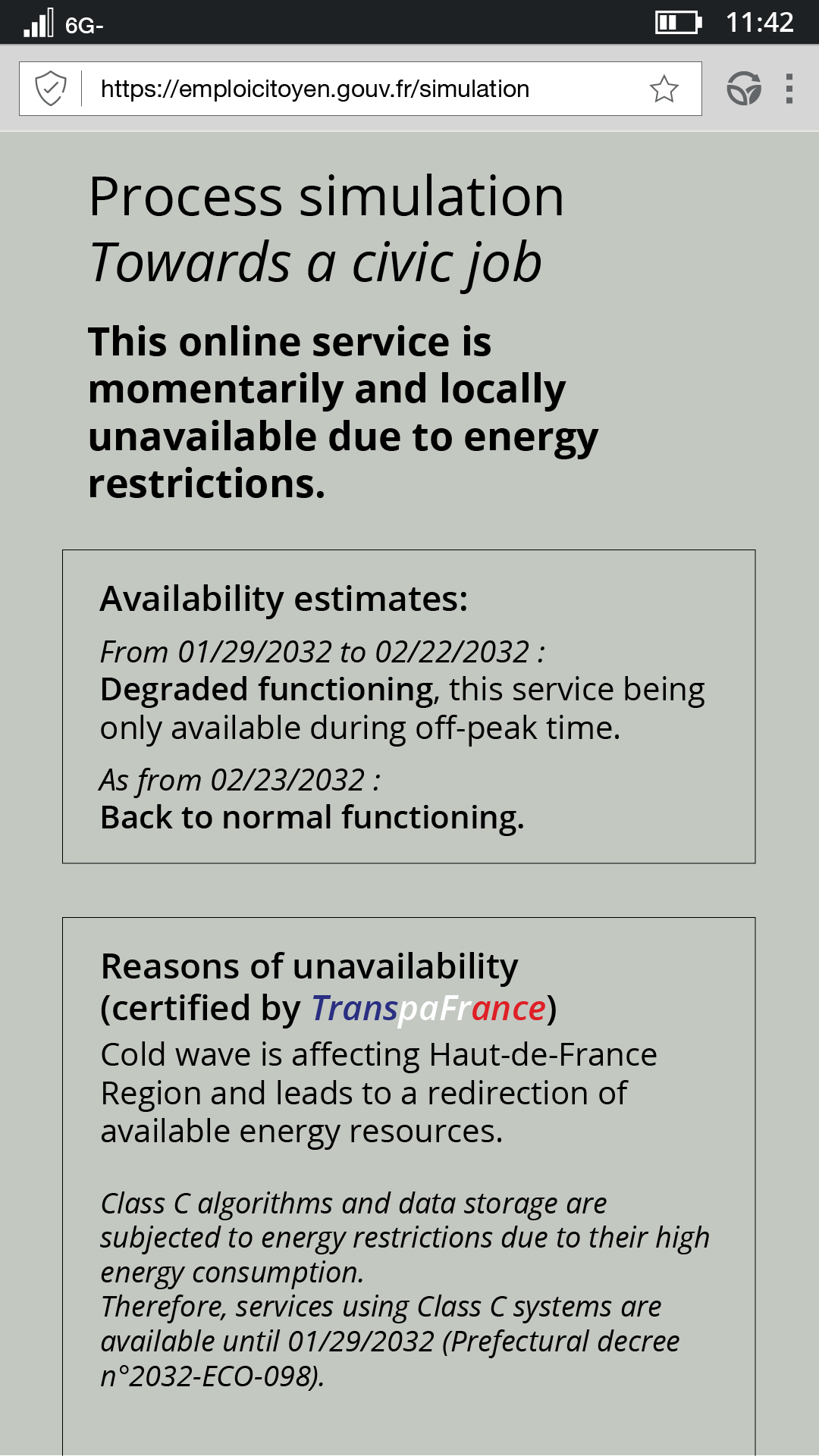In 2030, the climate emergency and its environmental impacts question more than ever the role of public digital technologies. France learns willy-nilly to do with less. In response to the increasing scarcity of raw material and to the energy crisis, the time for ‘unlimited’ digital technologies has passed for good. Operating in fail-soft mode is the new standard.
Public algorithms have been oriented towards low-tech logic. Just like energy, they have also become sporadic. Their availability and their daily operation depend on two factors, one circumstantial, and the other structural: available energy resources (circumstantial factor) and the climate crisis (structural factor). If those conditions are not met, public algorithms are then suspended, in the logic of State exemplarity. And for good reasons, algorithms and learning systems have become timely scapegoats, accused of contributing to global warming.
Aiming at providing some nuances, the availability and the soft-fail mode are also developed in spatial terms, according to resources and local context, and in temporal terms, with algorithms having their own expiry date.
Decisions to implement a public algorithm are also determined by new ethical criteria. Among them, the direct and indirect energy and climate impact of the algorithm, or what happens on non-human beings (animals and plants).
Despite a whole range of measures, environmental degradations establish a growing social instability.
— Public information on the availability of public services relying on algorithms

— The evaluation grid for algorithm projects, with appropriate criteria for a degraded world

— An error page of an unavailable algorithmic service
